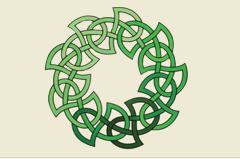Abstract
Owen Barfield’s position in his “Great War” with C.S. Lewis holds that the imagination can both perceive and create truth via poetry. Contrarily, Lewis’s position in the “war,” which took place during the 1920s before his conversion to Christianity, holds that the imagination can in no way create truth. This paper explicates Barfield’s position and arguments as well as Lewis’s objections in order to demonstrate how Barfield is victorious in the war. I examine Barfield’s understanding of the natures of imagination and truth as seen in Poetic Diction, and subsequently turn to his arguments for imagination’s passive and active relationship with truth. I also consider Lewis’s objections to these two arguments based on his own views of the natures of imagination and truth. Finally I provide a case for Barfield’s victory by examining this theory of imagination in Poetic Dictionand by demonstrating Lewis’s implicit surrender post-conversion.
Recommended Citation
Margtheim, Stephen
(2010)
"Truth and Imagination in Poetic Diction: Owen Barfield and C.S. Lewis's Great War,"
Inklings Forever: Published Colloquium Proceedings 1997-2016: Vol. 7, Article 36.
Available at:
https://pillars.taylor.edu/inklings_forever/vol7/iss1/36
Included in
English Language and Literature Commons, History Commons, Philosophy Commons, Religion Commons

